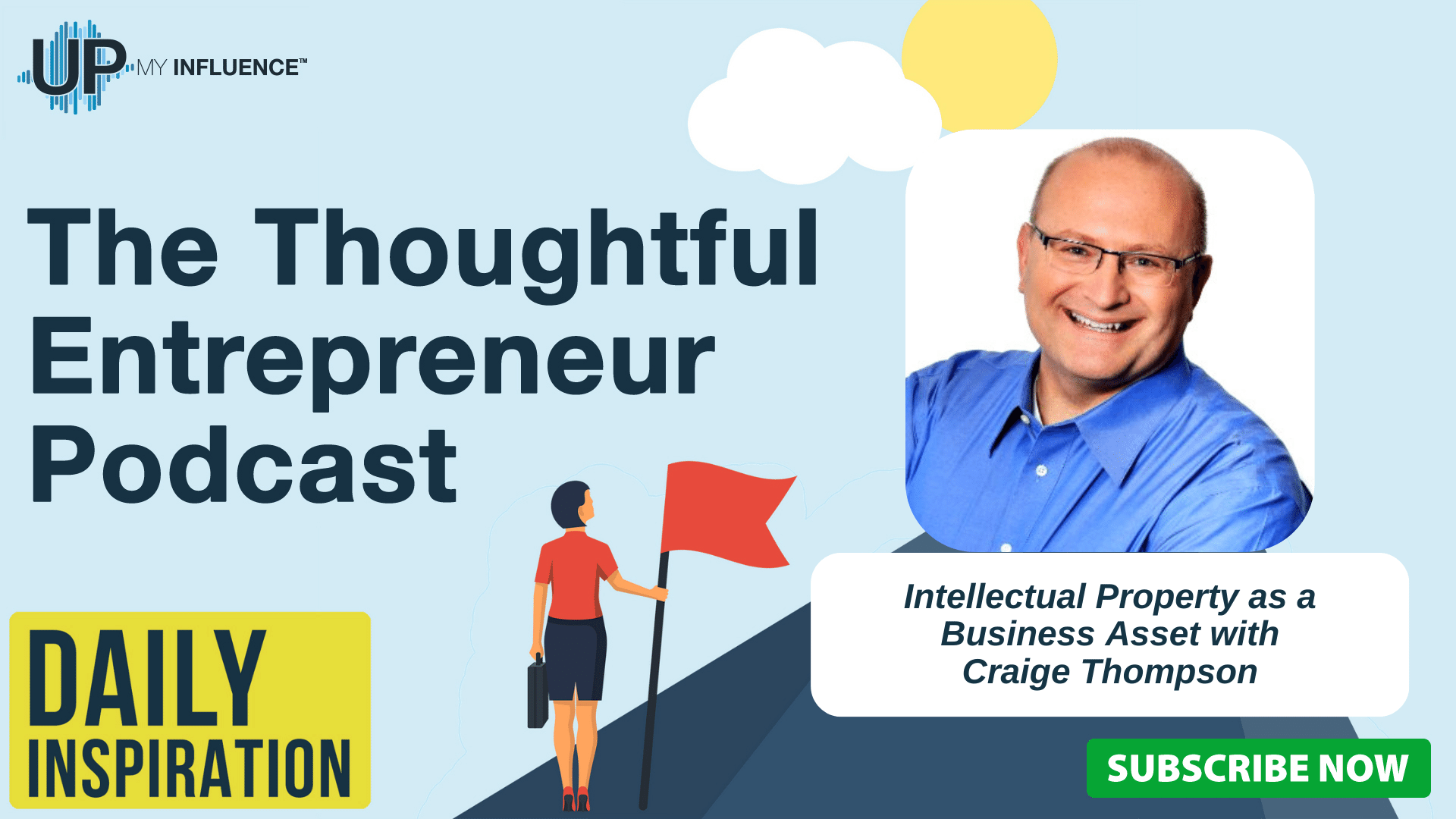THE THOUGHTFUL ENTREPRENEUR PODCAST
In this episode of the Thoughtful Entrepreneur, your host Josh Elledge speaks with the Entrepreneurial Patent Attorney, Author & Speaker of Modern Thompson Patent Law, Craige Thompson.

Craige's journey into the world of patent law is a fascinating one. He grew up working for his entrepreneur father, which sparked his passion for business. After a decade-long career in electrical engineering, he transitioned to patent law.
Over the past 24 years, he has worked with individuals and companies of all sizes, including tech giants like Apple, Google, Intel, and Honeywell. His mission is to protect entrepreneurs from financial ruin, a lesson he learned from witnessing his father's business collapse due to changes in government regulations.
Craige explained that intellectual property falls into four categories: trade secrets, patents, trademarks, and copyrights. His expertise lies in patents and trade secrets, where he assists technology companies in safeguarding their innovative products and services from copycats and infringers.
Craige emphasized the importance of protecting your brand reputation and trademarks. He explained that a strong brand reputation leads to a certain level of quality associated with your trademark.
However, some copycats try to trick people by using similar trademarks, thereby cheapening your brand. He stressed the need to act if someone misuses your trademark.
Craige also highlighted the value of intellectual property as a business asset. He explained that patents can be bought, sold, rented, used as collateral, or enforced against others.
By securing your intellectual property, you increase the valuation of your company, whether you're looking to exit, scale, or create additional income through licensing deals.
Key Points from the Episode:
- Introduction of Craige Thompson as a patent attorney and founder of Thompson Patent Law and Invention to Exit
- Craige's background and experience in working with individuals and companies of all sizes
- Explanation of the four areas of intellectual property: trade secrets, patents, trademarks, and copyrights
- Importance of seeking assistance from an attorney in the process of protecting intellectual property
- Discussion on protecting brand reputation and trademarks from copycats and improper use
- The suggestion of exploring business solutions rather than immediate litigation in resolving trademark disputes
- Highlighting the value of intellectual property as a business asset and its various uses
- Recommendation of Thompson Patent Law's lightning prior art search for determining patentability
- Emphasis on the importance of protecting intellectual property throughout the podcast
About Craige Thompson:
Craige Thompson is an accomplished professional with a mission to support creative problem solvers and enhance the impact of patented innovations.
Transitioning from electrical engineering to patent law at the world's leading patent firm in the early 2000s, he has focused on maximizing the value of businesses through integrated processes involving intellectual property (IP), operations, and marketing expertise.
With over 30 years of A-level engineering and patent experience, Thompson excels in solving complex technical, legal, and business challenges. His proprietary system, “LITIGATION QUALITY PATENT” (R), reflects his commitment to engineering patents as valuable business assets that generate substantial profits.
Craige's team specializes in offensive and defensive patent protection and provides litigation-quality solutions to safeguard market share and defend against patent infringement.
His technical expertise spans diverse areas such as analog circuits, power electronics, embedded systems, medical devices, and more. Craige's innovative contributions aim to protect and leverage patents for increased business profitability.
About Modern Thompson Patent Law:
Thompson Patent Law specializes in creating patents that hold substantial value and withstand legal scrutiny. Positioned as the home of the Litigation Quality Patent, their approach emphasizes generating faster revenue by ensuring patents command respect rather than being easily dismissed.
The firm, a boutique comprised of attorneys with extensive experience as Electrical Engineers, uniquely “Speaks Fluent Engineer,” facilitating efficient communication with inventor-engineers.
With a focus on delivering high-value, litigation-quality patents, Thompson Patent Law has a proven track record working with major clients like Apple, Google, Intel, and Microsoft, as well as smaller businesses and startups.
The firm's commitment to doing things “the right way” aligns with the author's book, “Patent Offense,” offering insights into a re-engineered, faster path for obtaining higher quality, more cost-effective patents.
Links Mentioned in this Episode:
Want to learn more? Check out Thompson Patent Law website at
https://thompsonpatentlaw.com/
Check out Thompson Patent Law on LinkedIn at
https://www.linkedin.com/company/thompson-patent-law-offices-pc
Check out Thompson Patent Law on Facebook at
https://www.facebook.com/ThompsonPatentLaw
Check out Craige Thompson on LinkedIn at
https://www.linkedin.com/in/craigeothompson/
Check out Craige Thompson on Twitter at
https://twitter.com/craige_thompson
Don’t forget to subscribe to The Thoughtful Entrepreneur and thank you for listening. Tune in next time!
More from UpMyInfluence:
We are actively booking guests for our The Thoughtful Entrepreneur. Schedule HERE.
Are you a 6-figure consultant? I’ve got high-level intros for you. Learn more here.
What is your #1 Lead Generation BLOCKER? Take my free quiz here.
Want to learn more about all the podcasts managed by UpMyInfluence? Opt in here.

